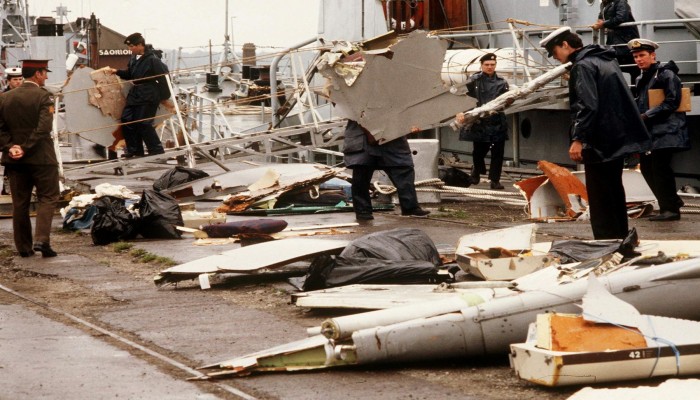35 Years of Kanishka Air Crash: Canada's 'Selective' Tolerance Against Terrorism
- In History & Culture
- 12:09 PM, Jun 26, 2020
- Ranabir Bhattacharyya
It has been more than three and a half decades since the infamous AI Kanishk bomb explosion which killed all 329 people on board. As Justin Trudeau's Canada government continues hobnobbing with the Sikh separatists for popular votes, the relatives of the victims of the 1985 Air India Kanishka mourn the tragic event. The AI Kanishka Flight 182 was blown off mid-air off the Irish Coast as it was going from Delhi to Montreal. A bomb was planted by the Khalistanis and it was a revenge to avenge the successful Operation Blue Star executed by the Indian Army to free the Golden Temple in June 1984.
Canadian indifference: politics of appeasement
Let's not forget that there were 280 Canadian citizens among those 329 who were killed in the air crash due to bombing. After that incident, June 23 is recognized in Canada as the National Day of Remembrance for the Victims of Terrorism. Unarguably, it was Canada's 9/11 and the country has four memorials to the tragedy in Toronto, Vancouver, Ottawa and Montreal respectively. Sadly, all these years, only one man, Inderjit Singh Reyat was convicted to the Air India bombing and he is now free after spending 30 years behind the bars. Is it possible for a single man to be responsible for such a terrorist act and that too an air crash? Was the investigation full proof? Incidentally, Canadian authorities believe that Talwinder Singh Parmar was the mastermind of the whole plot, who was killed by the Indian Police.
Canada's 'different' stand to the Iran air crash earlier this year
On January 8, Ukraine International Airlines Flight PS752, a scheduled international passenger flight from Tehran to Kyiv, carrying 55 Canadian citizens and 30 permanent residents, was shot down by an Iranian surface-to-air missile. It was considered as a 'Canadian' tragedy following public mourning. The 'same' Canada considered the AI Kanishka air crash as an 'Indian' tragedy and in fact, the erstwhile Canadian Prime Minister Brian Mulroney offered condolences to the Indian Government and not to the Canadian families of the victims' aftermath the man-made disaster. This curious case of 'selective' empathy calls for a critical analysis of Canada's foreign strategy and commitment to humanity at large.
Trudeau, populism and strategic sympathy for Khalistanis
The whole idea of a Khalistan aka a sovereign Sikh theocracy is against the sovereignty of Indian democracy. From Indira Gandhi's reign to the present Prime Minister Narendra Modi, India hasn't changed its stance in this issue. To tell the truth, the Khalistan Movement doesn't have the support of the Sikhs, rather it has been a destabilizing force funded by Pakistan and other anti-India forces. Khalistani radicalism is a Canadian reality which can't be ignored and itself is a great threat to the basic ethos of Canada. Justin Trudeau, the Canadian PM and leader of the Liberal Party in Canada, has never been clear on this issue and the 'soft' approach towards the Khalistanis pinpoint at the vote bank politics of the popular leader.
Someday, the Canadian government may realize that Khalistani extremism is more dangerous for Canada than India.
Every 23rd June is a gentle reminder to all that terrorism and ethnic hatred is all about. India, as always, will keep its stance against terrorism whoever is involved in it. Selective tolerance against terrorism doesn't make the world a better place. India will never forget the victims of the 1985 Air India Kanishka air crash. Canada should realise that by giving indulgence to Khalistani terrorism it can only sow the seeds of extremely dreadful and explosive acts in their own country too. Appeasement for a short term benefit has a far reaching effect. History has enough evidences of such immature acts.
Image provided by the author.







Comments